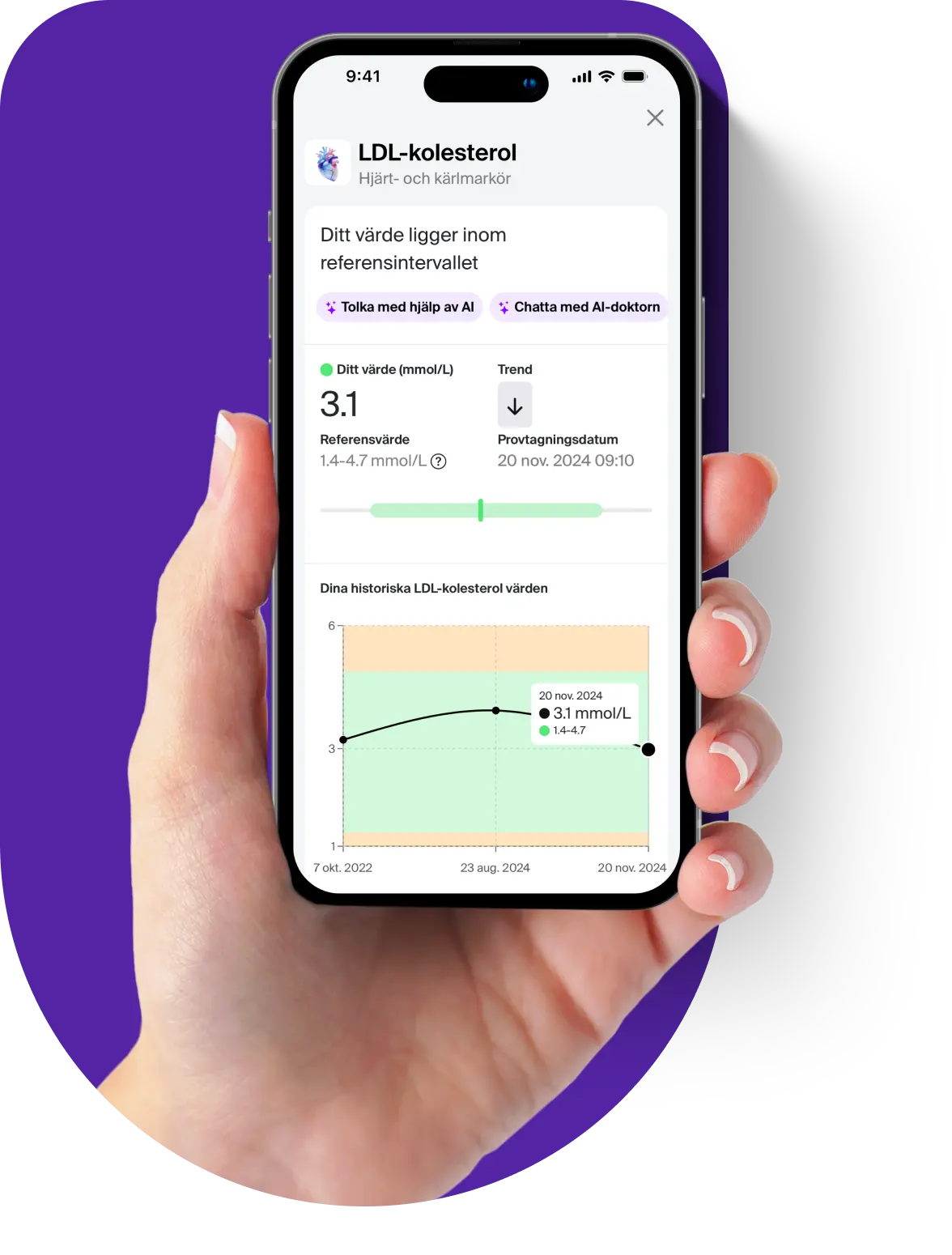Apolipoprotein B (Apo B) is the protein that helps transport LDL cholesterol, the “bad” cholesterol, in the body, which increases the risk of cardiovascular disease.
By measuring Apolipoprotein B together with Apolipoprotein A, the ratio can reflect the balance between the different types of cholesterol and assess the risk of cardiovascular disease and suspicion of impaired lipid metabolism. We recommend that you also order analysis of Apolipoprotein A1 (Apo A1) in connection with sampling of Apo A1.
What does the research say about Apolipoprotein B?
Studies show that Apo B is a more specific and reliable marker for predicting the risk of cardiovascular disease than traditional LDL cholesterol measurements. Because each atherogenic lipoprotein (LDL, VLDL, IDL, and lipoprotein(a)) contains a single Apo B molecule, the test provides an accurate idea of the total amount of harmful cholesterol particles in the blood.
Research has also shown that people with normal LDL cholesterol levels but elevated Apo B have a significantly higher risk of atherosclerosis and heart attack. This is because small, dense LDL particles are more likely to penetrate the walls of blood vessels and cause plaque formation, which increases the risk of atherosclerosis.
Why test APO B?
- Identify risk: High levels of Apo B indicate increased levels of "bad" LDL cholesterol, which can increase the risk of cardiovascular disease.
- Balance between cholesterol types: Measuring Apo B and Apo A1 gives you a clearer picture of the balance between good (HDL) and bad (LDL) cholesterol.
- Improved health assessment: Regularly checking Apo B can help you detect and manage cardiovascular risks and lipid metabolism problems early.
- More accurate than LDL cholesterol: Apo B directly measures the number of atherogenic lipoprotein particles, making it a more reliable indicator for cardiovascular risk than LDL cholesterol alone.
- Especially important for people with metabolic syndrome: In individuals with insulin resistance, obesity or type 2 diabetes, LDL cholesterol values can be misleading. Apo B provides a better risk assessment in these cases.
How can elevated Apo B levels be lowered?
If your Apo B value is elevated, you can take several steps to improve your lipid profile and reduce your risk of cardiovascular disease:
- Heart-friendly diet: Increase your intake of unsaturated fats from olive oil, avocados, nuts and fatty fish. Reduce your intake of saturated fats and trans fats.
- Regular physical activity: Cardiovascular exercise and strength training can lower Apo B levels by improving fat metabolism in the body.
- Weight control: Weight loss in overweight or obese people can significantly improve your lipid profile.
- Avoid sugar and refined carbohydrates: A high sugar intake can increase the production of small, dense LDL particles that are more atherogenic.
- Treatment if needed: Statins, PCSK9 inhibitors, and other lipid-modulating drugs can be effective in severely elevated Apo B levels or high cardiovascular risk.
Measuring Apo B gives you a deeper insight into your heart health and can help you take the right steps to prevent cardiovascular disease in time.

























